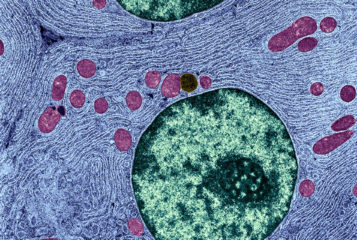The Nuffield Council on Bioethics is seeking views on the reproductive uses of genome editing in humans. Regular readers of BioNews will know that genome editing (including with the CRISPR/Cas9 technique) offers a way of making precisely targeted modifications to DNA in living cells, harnessing the cells' inbuilt repair mechanisms to repair a deliberate, double-stranded DNA break in a way that may either disable or introduce a functional DNA sequence. The prospects of biomedical technologies based around this set of techniques were explored in last year's Nuffield Council on Bioethics report, Genome editing: an ethical review. The report covered applications in drug development, cell-based therapies, public health, ecosystem engineering, agriculture, security, culture and leisure. All of these applications raise distinctive moral questions.
Following on from that publication, a second stage of the Council's work takes up these questions from the perspective of challenges facing human societies. The first to be addressed is the challenge posed by inherited genetic disease and, by extension, the conditions imposed on human life by the human genome, its processes of recombination and its potential for expression. What impact, we want to know, might the capacity to make inheritable genetic changes at the embryonic stage or prior to that stage have in this domain of challenges? What would be at stake in using genome editing in this way? Or in not using it?
The reasons for giving priority to this area, which is already subject to comprehensive and effective legislation in the UK, are not that the use of genome editing in human reproduction is necessarily the most immediate application of this technology. The reasons for taking it up are, rather, that such applications raise perhaps the most morally difficult questions and are the ones that, if they are to be pursued at all, will require lengthy and far-ranging debate, and be authorised only after the most exacting and circumspect process. Think of the process that led to the decision to allow mitochondrial donation (see BioNews 882) for IVF (in vitro fertilisation) in the UK: the path was already laid out by 2008.
Before human genome editing becomes a prospect, policymakers will have to confront important questions about how far we, as a society, should go in altering fundamental aspects of human biology. We think these decisions about genome editing should be informed by a broad debate that engages with the whole range of views that people in our society may hold. The Nuffield Council on Bioethics is an independent organisation that exists to examine ethical questions in biology and medicine that may affect the public interest.
We want to involve as many people in our society as possible in the deliberations on genome editing. We have produced a survey to stimulate thought and debate, and to provide a way to make those views heard. No special knowledge is needed to complete the survey, just a willingness to think through the situations described.
The survey is built around three scenarios, responses to which are explored through five questions in each case. Although the scenarios are imagined, they aim to describe real situations that could plausibly arise in the future. As well as answering the multiple-choice questions, respondents are encouraged to reflect on the reasons for their responses and the considerations that influenced their reasoning. We hope the survey will enable us to build up a picture of the range of views in our society and the reasons for holding them, and the thresholds of acceptability that separate different kinds of procedure, and the grounds on which they are based.
The survey is one strand of a multi-stranded programme of research that will contribute to a final report later in 2017. Another strand is a 'refresh' of our 2016 Call for Evidence, which is aimed at institutions and those already engaged in genome editing debates. Responses to both of these strands should be submitted by 30 June.





Leave a Reply
You must be logged in to post a comment.